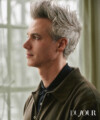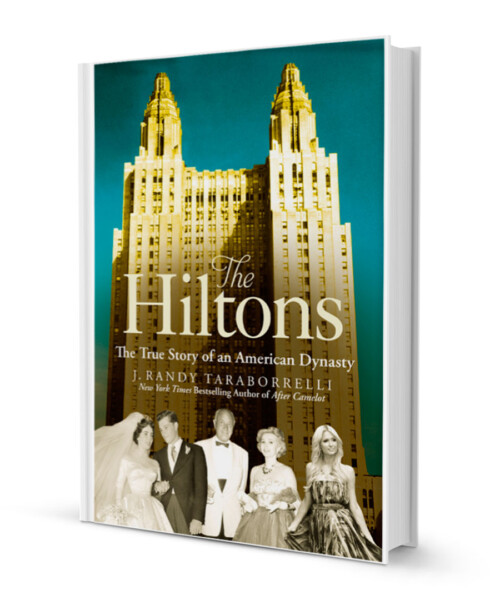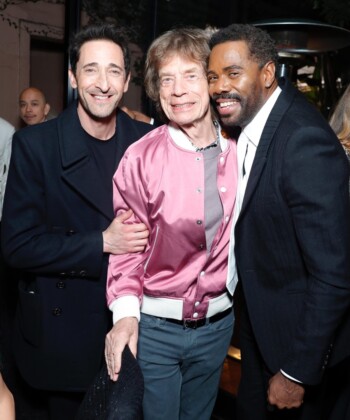The latest work by biographer J. Randy Taraborrelli, The Hiltons: The True Story of an American Dynasty, recounts a history of scandals and troubled affairs that rocked the iconic American family and its patriarch, hotel magnate Conrad Hilton. The book is out this month; below, read an excerpt from its pages:
It was Monday morning, June 11, 1979. “Conrad Hilton is rolling over in his grave right now,” Zsa Zsa Gabor was saying to the attorney Myron Harpole. The two were on the telephone, discussing the details of a sworn deposition Zsa Zsa was to give later that week about her relationship with her late husband, the international business pioneer and hotel magnate. “Oh, how he would love to be able to control what I say about him,” she observed wryly. “I don’t know if that’s true,” Myron said carefully. He had been Conrad’s attorney for more than thirty years, and even now, six months after his client’s death, was still protective of him. “Oh, Myron,” she said, laughing. “You know that if Conrad could be there, sitting right behind me and whispering in my ear, he’d love it.”
It was true that throughout his lifetime Conrad Hilton had been a man used to being in complete control—of himself and, some might argue, everyone around him. As one of the most successful businessmen in the world, he had made hundreds of millions of dollars, with hotels around the world bearing his name. He certainly didn’t carve out such a niche by allowing others to impose their will upon him. Generally speaking, though, he was well liked and had a stellar reputation among his colleagues. He was a good man, known as much for his philanthropy as for his hotel empire. Privately, though, he did have his eccentricities, not the least of which was his stringent attitude about his wealth and the manner in which it should be distributed to immediate family members.
It had long been Conrad’s belief that merely being related to him should not guarantee his heirs a carefree, privileged life. He had made his money in what he called “the good, old‑fashioned way,” meaning he had earned it. A product of the Great Depression, he wanted his relatives to inherit his work ethic, not his money. A loan might be given from time to time to one of his four children, but failure to pay it back would result in a breach of trust not easily remedied.
Now that Conrad was gone, some of his family members had serious reservations regarding his last will and testament. With hundreds of millions of dollars on the line, the stakes were high. There were hurt feelings, many questions. A legal effort to redress some of these grievances was the reason Zsa Zsa was now being compelled to share her private memories of Conrad with a battery of attorneys.
“Tell me, Myron, will you be at the interview?” Zsa Zsa asked.
“We’ll see,” Myron answered. “And, by the way, it’s a deposition, my dear,” he reminded her. “Not an interview.”
“Well, when people ask me questions,” Zsa Zsa said, “I give them answers. For me, that’s an interview.” Indeed, for the last three decades, she had been a staple on television talk shows, flamboyantly chatting it up with Merv Griffin and Jack Paar, Steve Allen and Johnny Carson about her life and times, often embellishing the truth for the sake of a good laugh. Zsa Zsa was flippant, irreverent, and entertaining, her thick Hungarian accent and uncommon beauty distinguishing her almost as much as her rapier wit.

Zsa Zsa Gabor, Conrad “Nicky” Hilton and actress Natalie Wood at Mike Romanoff’s Restaurant in 1957
“But, remember, you will be under oath this time,” Myron said.
“Myron, please! you know me,” she responded. “I always tell the truth!”
Three days later, at noon on Thursday, June 14, Zsa Zsa Gabor walked briskly past the front desk of the Beverly Hills Hotel, her head held high. Wearing a billowing red‑and‑gold‑striped caftan and matching spiked heels, she tried to act oblivious to the stares of everyone she passed. She would have to admit that she loved the attention, though, and she didn’t have to work hard to generate it. At sixty‑two, she was still quite beautiful. Her skin was flawless, full of health and vitality, her teased hair a light ash blonde. Her steely and determined blue eyes were hidden behind oversized celebrity sunglasses. As she walked, her gait was one of real purpose, as if nothing could ever get in her way. Of course, this had always been her story.
Since arriving on the SS President Grant, overcrowded with refugees such as herself from Hungary, almost forty years earlier, Zsa Zsa had always known exactly what she wanted out of life: success, happiness, wealth . . . the so‑called American dream, in all of its red‑white‑and‑blue splendor. She would do a lot to get it, too, as she would prove many times along the way, even if that meant marrying for prosperity—which she did more than a few times. including Conrad Hilton, seven times, to be exact. so far.
Zsa Zsa’s footsteps echoed sharply as she marched across the marble foyer of the Beverly Hills Hotel. She nodded at the concierge; he touched his cap in recognition. She then walked quickly down the red‑carpeted hallway, past the famous Polo lounge restaurant, out a pair of French doors, and then through a lovely flower garden in the direction of a nearby bungalow. As she entered the bungalow where her deposition was to be conducted, she immediately switched on her stage persona and played to the audience at hand. “My God! Just look at all of these gorgeous men!” she marveled as she swept grandly into the room. Four attorneys and a male court reporter stood before her with big smiles. “I love being surrounded by gorgeous men,” she enthused. “Everyone knows that about me by now.”
“Zsa Zsa, how wonderful to see you,” said Myron Harpole as he emerged from the group to greet her. A solid Harvard law school graduate in a fastidiously neat dark suit, he extended his hand to shake hers, but she brushed it aside and embraced him. “Myron, can you believe that we are here? ” she asked, looking around. “Why, my Connie used to own this hotel!” A tangle of gold bracelets on each wrist made clinking noises every time she used her hands to express herself, which was often.
“No, my dear, actually he didn’t,” corrected the lawyer. “He owned the Beverly Hilton Hotel, not the Beverly Hills Hotel.”
She looked at him with a quizzical expression. “No, I think he owned this one, too,” she insisted.
The lawyer smiled patiently and, with a small smile, shook his head no. “Well, I can’t blame you for not knowing,” she said with a dismissive wave. “He owned so many hotels, who could keep track?” It was true. Zsa Zsa’s ex‑husband had either owned or managed luxury hotels all over the world, most of them—such as the famed Waldorf‑Astoria in New York City, which he considered the favorite among his legion—were extraordinary when it came not only to ambiance but also to service. Hilton wanted his guests to be pampered and treated with the utmost respect. For him, it was as much a personal endeavor as it was professional. Therefore, a Hilton hotel would always be a cut above the competition, at least as long as Conrad Hilton had anything to say about it.
Just as Zsa Zsa and Myron Harpole finished their conversation, another lawyer representing the Hilton estate, Ralph Nutter, entered the bungalow. He would be the one asking most of the questions on this day. He greeted Zsa Zsa and quickly took his seat. After Zsa Zsa was sworn in, the deposition began.
Excerpted from the book The Hiltons: The True Story of an American Dynasty by J. Randy Taraborrelli. Copyright © 2014 by Rose Books, Inc. Reprinted by permission of Grand Central Publishing. All rights reserved.
MORE:
10 Anecdotes of Excess About the Johnson & Johnson Family
Fascinating and Disturbing Secrets of the Chelsea Hotel
Inside the Iconic Versace Mansion









































